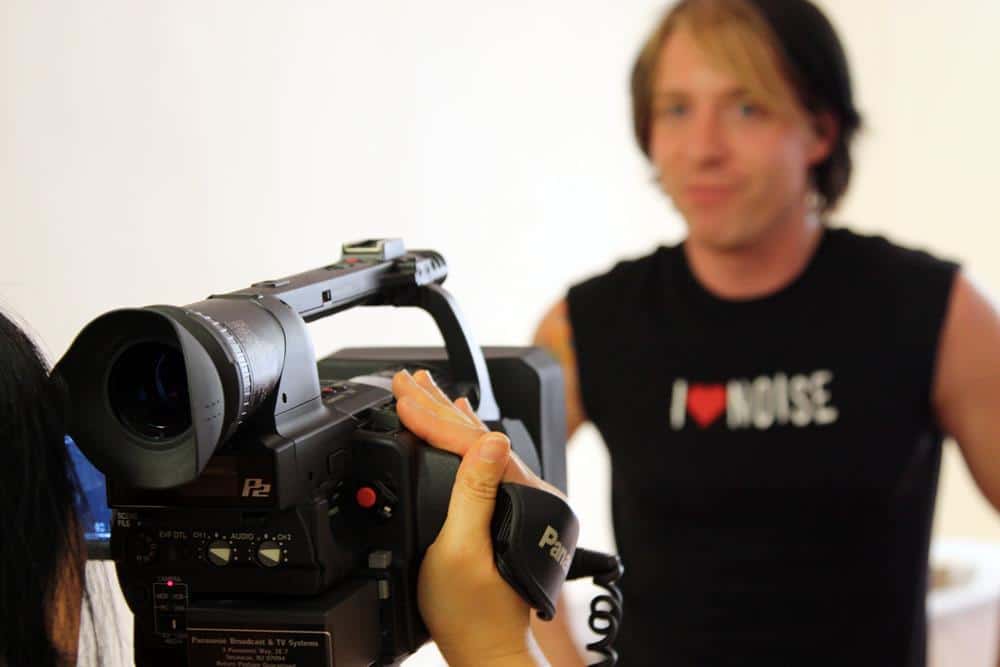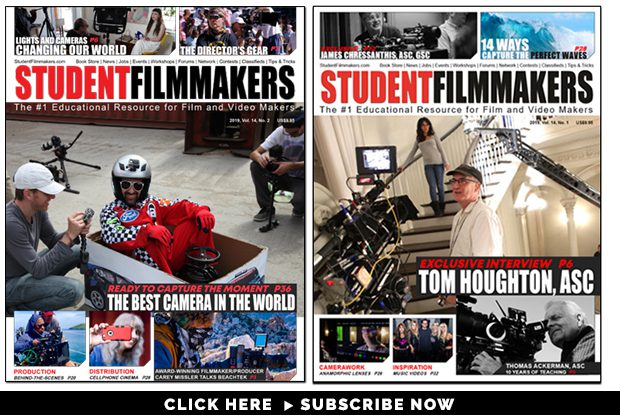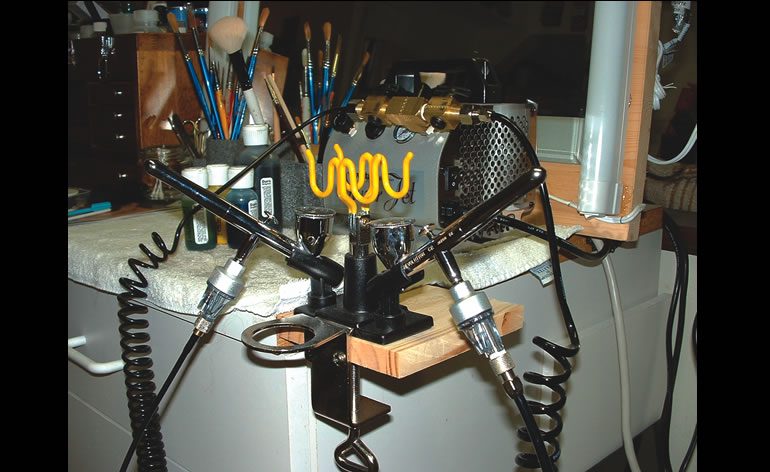Written by Sky Crompton
Actors are what bring the screen to life. A landscape can be compellingly photographed but the moment a person steps into it, it has a greater meaning, a human context that we immediately identify with because we are human. When it comes to choosing the cast for a film, it is much like casting a line when fishing. You know that there are fish out there, but it will take time and skill to land the right one. Just like in Salmon Fishing in Yemen (2011), you need to have a process, skill, and a little faith your hard work and patience will be successful. Finding processes that work is the easiest to acquire, as others have done this before you. One way of ensuring you have every opportunity for this success to happen is in the careful preparation from the very beginning of the production process. This includes when you start casting and then move into rehearsal of your project. While this statement may seem to be a given assumption it is apparent that at all levels of production from student to studio films that such a process has failed to be followed or considered well enough from the surprisingly inept casting decisions we see time and again. The processes here are based upon research, observation and hard won experience. Hopefully they will save you some confusion and heartache that may come as you bring you project to the screen.
Ground Rules
Before we start there are some do’s and don’ts to remember. The film and television industry is just that – a professional industry. No matter how much we go on about it being creative, it is a business and everyone’s time, including yours, is valuable. Do be prepared when you contact an agent, casting director or actor.
(1.) Background research. Know what they do and what films they and/or their company/clients have done recently and in the past, and importantly, why they might want to do your project.
(2.) Be prepared. Be clear and specific about what you are requesting.
(3.) Be polite and have ready all documents they could request such as cover letters, cast briefing sheets, character breakdowns, synopsis and scripts.
(4.) Be early for every appointment. Actors always are. Don’t act as if everyone in the film industry owes you something, because they don’t. Some people will help and others won’t, and that’s even when you pay them. You will get a lot of rejections; it is the nature of the industry. The road to success is paved with perseverance and preparation. Don’t try to bring on a cast above the production’s market or the director’s skill level. You could expend a lot of effort to attach such and such name, only to have their agent pull them for the blockbuster that starts shooting the same day your film does. Rather spend your time and effort with a cast of actors who are interested in the project and will make it special by their commitment that is where great performances come from. Many inexperienced directors waste money and skilled actors by lacking the skills to utilize them to their optimum. Do pay your cast. On shorts or indie features minims as a rule but at the very least an agreed fee. It shows your professionalism that they are valued. Both the cast and their agents will give you respect and in my experience, you will get a better performance every time. Finally don’t treat this article as the last word. It looks at processes to avoid problems relating to how to contact, select and work with actors. It is not a complete resource on acting or directing methods, which is a more in-depth conversation. Treat this as a primer on casting your production.
About Actors
Actors want to please you. They want the job, part, gig. To that end they will generally tell you what they think you want to hear. This could be said of every person applying for a position in any profession but the implications within the context of performance are greater as so much hangs on the actor as a person. Actors are trained to put on ‘the face,’ the very nature of their craft lends itself to hiding the real person. But ultimately it is the real person who gives the performance whatever the interface or mask they put on between the real them and you. Given this understanding of the nature of actors it is important that when you plan to cast that you have strategies in place to see beyond the mask or face to get to the real person. This will really happen immediately at an audition so you need to plan a process where by the tasks you set allow you to see the reality behind the mask. In affect you want to see how to develop and put on the mask as these are the skills you are employing for your film. The best actors achieve their craft through transcending self to becoming a unique character and allowing that character to change, succeed, fail, grow or vanish, sometimes over a single moment so that the audience feels that characters experience and is transported. A director’s job is to assist the actor finding their way to the performance. This is done by a clear knowledge on the part of the director that the actor needs to feel safe, be given clear goals and the freedom to reveal them as the character.
Casting as a Process
Over and again I see the same mistakes repeated: not enough time given to casting and rehearsal; the general and indiscriminate casting call; confusion and the wrong questions asked when casting. These and other mistakes often lead to the wrong cast being chosen from a large pool of the usual suspects from the shotgun approach to casting. Which works on the assumption that more is better when it comes to choice. Personally I think it is just more and more leads to confusion. This approach of more choice comes from inexperience in handling the audition process [large or small] and being unclear about what the producer and director are each looking for in the cast [this can be widely different]. Many of these mistakes could be avoided with better planning, communication, and process.
The beauty of a process is that once you have a process down you can amend it for each production, throw it away or fall back on it when all starts to hit the fan. And that is the core benefit of a process; it gives you something to fall back on when all else fails. Now personally I don’t do casting calls. I believe that they have their place in very specific situations such as searching for young talent or when casting large numbers of extras. Otherwise there is a lot of time and heartache spent by all parties in a process that does not always yield the best cast member. Remember, you could just be choosing the best from the worst selection. There is also the problem of losing your original vision in the melee of voices and characters you meet. But there is another approach worth considering and it is a cornerstone of the process I am outlining. Don’t get me wrong, casting calls have their place and if well managed it can be successful for a production. To avoid the issue of inexperience it is beneficial to adopt a process whereby the director and their producer are able to set out exactly who and what they are looking for and then to see the most appropriate cast for the role and the market positioning of the production.
Advice and Research
It is important to have a realistic goal for who you want to cast in your film, aim to reach a cast that gives your project the best chance of succeeding through their skill first and profile second. In reality profile while nice is not essential but skill is. Along with this it is important to know the level of ability that the director has with actor direction [also crew direction]. Try to look for cast that are on a similar level or you could find yourself with actors who despise a director who is not experience enough to follow industry standards of practice. While most experienced actors will give beginners the benefit of the doubt it can go the other way with ignorance and inexperience creating unbridgeable problems for the production. Better to work with a happy group of inexperienced cast and crew than an unsuccessful balance of pro and learner. Casting directors exist for a very good reason. They know more about actors than we do. What do I mean by that? It is their job to know what actors are available, suitable and achievable and most importantly who the up and coming and undiscovered talent are. They go to theatre, hold audition sessions, visit acting schools and studios always on the look out for new talent as well as socializing with those who have ‘made it’ and finally of course the casting directors know the actors agents and therefore have access to cast that directors and even producers do not. So first, make a friend of a casting director, get them to mentor you, intern with them at the very least, or find a workshop where one is talking about what they do. What you will learn will be invaluable if only for the contacts you will make, better yet for the advice and potentially the cast they may help bring to your independent production one day. Secondly, do your research; all potential actors have headshots and CV’s that they distribute to film schools or online casting directories. So take your cast list sit down with the producer and discuss what you both want for each role then you can start on your casting briefs.
The Casting Brief and Character Breakdowns
When you or your casting director contact actors agents they will require a casting brief. This is a document outlining information regarding the production and role potential shooting dates and remuneration [payment] terms. They will also require a minim of a character breakdown and preferably a copy of the script. They will also want to know who the producer and director are and their experience; this can be a problem for student and first time indie producers and directors as they feel they have not got any experience. The best thing to do is to be honest and write a brief cover letter outlining the teams experience and a short CV outlining their production experience even if it is only student films. The idea is that the more professional you are the more professional you will appear to be and thus instil confidence. Remember that actors’ agents are interested in their clients’ careers and their fees, therefore you need to be offering an opportunity to advance one or provide the other. This could be as simple as a type of role they have not had before or a minim payment for an actor who has been doing unpaid work for some time.
Cast Selection
Okay, so you think finding actors should not be hard – simply go to your nearest coffee shop or diner and there will be someone wants to act. Or you could use your friends from school, or even better, take on the lead role yourself as well as directing and shooting the film. The really scary thing is that I have seen all these things done and seen them succeed, sometimes, but more often these solutions fail badly producing ugly performance and unwatchable films with people who want to be an actor but to have the skills you need.
It is preferable to do what the industry does and use casting directories. These directories allow you to review headshots, skills and attributes, and experience. More and more have online video reels of past work. Once you have done your research cull your lists down to two or three potential performers who have the requisite skills and attributes for the part. Here is where a casting director as a mentor can help by introducing you to the agencies that you want to talk to regarding their cast. If you have not found such a mentor then politely calling and requesting who handles the actor you are interested in and that agent’s email is the best place to start. You can then send in your casting brief and documents. When they do get back to you they will have further questions and once you have answered these they hopefully will ask you what your casting process is, this is where you decide what you approach is. At this point it is good instead of getting them to audition for the part to meet with them in a casual situation. No, that does not mean crashing their party or their cousins wedding. Arrange to have coffee, brunch or lunch in a quiet place where you can discuss you, them and the project. By the way at the same time that you’re interviewing them they are most certainly interviewing you, this is something good to remember. This approach gives all parties the opportunity of first refusal of the project for the price of a meal. What you will also learn is who the person behind the mask is and that is important to seeing if they have the skills you need to achieve your performance goals for the film. Once you have met with someone you think will work, get them to read for you and record it. This is useful for you to confirm if they are right for the role, as a future reference for others and finally the DVD/BlueRay special features producer will love you for the free footage. All you have to do is decide what the audition will be.
The Audition and the Script
Here is where you need to start making serious decisions. Who are you really interested in? Have you found the right person yet? If not you need to repeat the research and selection process. If this is the case look at your original selection criteria and clearly outline why the people you have seen are not right for the roles. So to be sure about your selections it is a good idea to get the potential selectees to read for the part. When getting an actor to audition make sure you give them pieces from the script that gives the actor the opportunity to show the full range of what you require and if they are capable of achieving. Another option which I have used more than once is to write a one to two page script encompassing the whole story
and range of emotions, this is both economical and requires real skill to pull off well allowing you to get a feel for what the potential cast member can do. Once you have gone through the process the director and producer can make their final selection and offer the part to the cast members by formerly contacting their agents and politely inform the agents of the other unsuccessful actor s of the part being filled. Try to avoid discussions of why they did not get the part unless asked directly, these conversations are very rarely productive for either party.
Conclusion
With a careful and considerate approach casting can be a productive and low impact experience on all parties even the unsuccessful ones. I mention this, as casting is most difficult on actors as rejection is part and parcel of the process. In line with this I have a few notes from the front line: If you get to cast profiled actors who you can see their previous work don’t bother auditioning them, you should be able to see what they can do. Instead use the dialog or conversation approach previously described. If concerned ask them to do a reading with potential cast to see how the mix of cast works. Remember actors are the most vulnerable of all the film and TV creative’s because of the nature of what they do. Their craft is high impact it is your job to make theirs as easy as possible so you get their best work, so look out for them even the ones you don’t end up casting and it will come back to you.
Sky Crompton is a Producer/Director/Writer and film scholar with over a decade of experience teaching film, TV, Animation and interactive media. His feature film, “Citizen Jia Li,” has screened internationally. Academically his research includes Asian Screen and transmedia. He has given papers at media conferences in Australia, Europe and Asia. Having developed animation and film courses his students have won numerous short film awards internationally. He can be contacted via twitter at: http://twitter.com/#!/gunghoscreen
More helpful articles and resources
Cinematography | Lighting | Cameras | Audio | Magazine Articles Archive
Post a Job | Network | Join Discussions in the Filmmakers Forums Online
Subscribe to StudentFilmmakers Magazine
Print Subscription >>
Digital Subscription >>

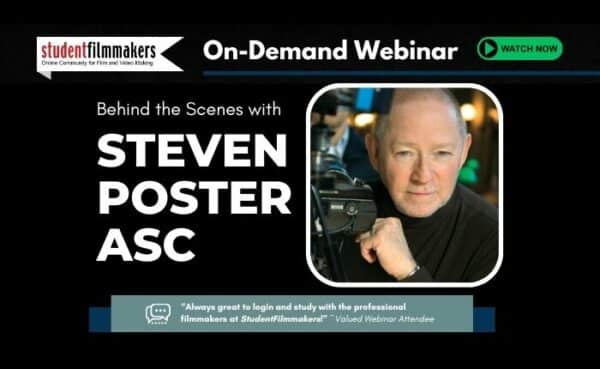 Included with Premium Membership – Behind the Scenes with Steven Poster ASC
Included with Premium Membership – Behind the Scenes with Steven Poster ASC 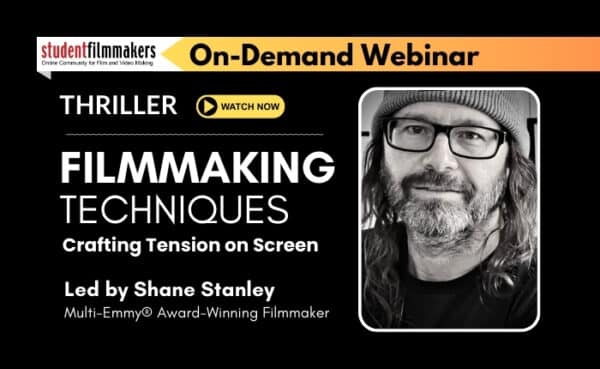 Watch with Premium Membership - Thriller Filmmaking Techniques – Crafting Tension on Screen with Shane Stanley
Watch with Premium Membership - Thriller Filmmaking Techniques – Crafting Tension on Screen with Shane Stanley 
